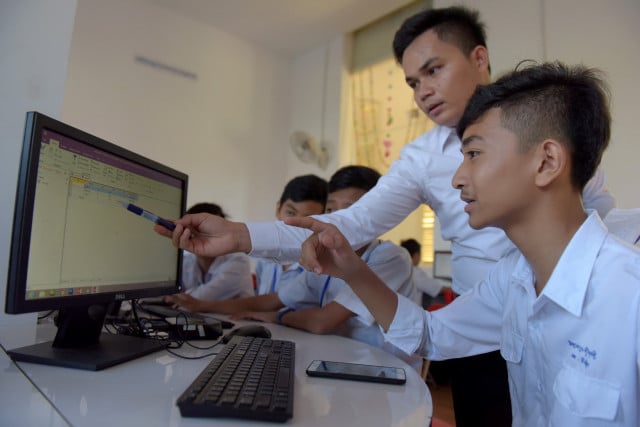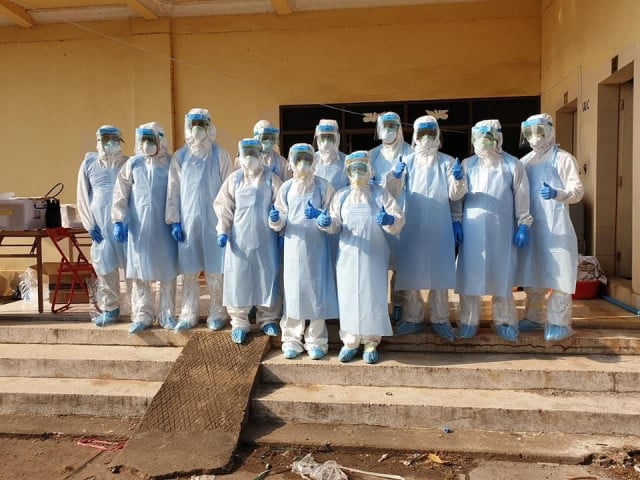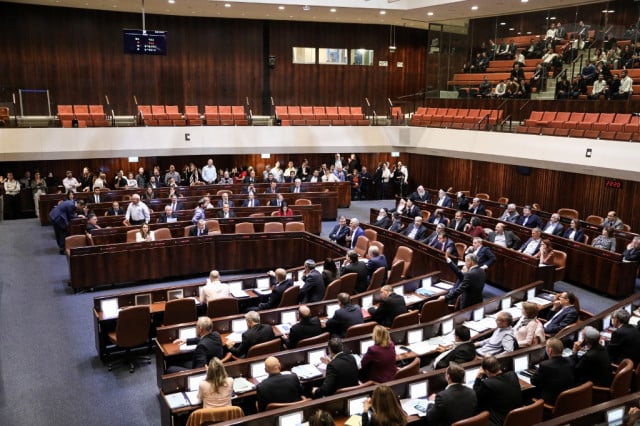ADB Grants Cambodia $70 Million to Develop STEM Education

- By Sam Sopich
- November 8, 2022 2:00 PM
PHNOM PENH – The Asian Development Bank (ADB) has approved a $70 million loan to Cambodia to support government efforts to deepen reforms in upper secondary science, technology, engineering, and mathematics (STEM) education across the country.
The announcement was made on Nov. 7 in a press release. It stated that the Science and Technology Project in Upper Secondary Education will help Cambodia develop high-quality human resources, especially in the STEM field, as the country aspires to transform its economy into a technology-driven and knowledge-based economy.
ADB is a Manilla-based regional bank that supports development programs to tackle poverty and enhance socio-economic progress among its member countries. Out of its 68 members, 49 are from the Asia-Pacific region.
Building on ADB’s earlier education sector development programs for Cambodia, the new project will expand access to standards-based upper secondary education, promote quality STEM education, and strengthen institutional capacity for the planning, management, and delivery of upper secondary education.
The bank’s Principal Education Specialist for Southeast Asia Lynnette Perez said that given the significant STEM skills gap, the project will help strengthen Cambodia’s education system by upgrading its traditional STEM education to keep up with the growing demand for a highly qualified labor force.
“This will be instrumental for Cambodia to integrate 21st-century skills, knowledge, and competencies into its STEM education. This would improve student proficiency in critical thinking, problem-solving, creativity, and collaboration, all of which are needed for a knowledge-based economy,” Lynnette Perez said.
The project will put in place standards for quality education for all upper secondary schools, upgrade facilities, and provide essential education technology and STEM equipment in Cambodia.
Among the project’s plans will be to upgrade the facilities of 14 upper secondary network schools and 103 general upper secondary schools by converting three classrooms in each into two science classrooms and one library with equipment, teaching materials, books, furnishing, and needed education technology resources.
To increase the pedagogical skills and content knowledge of teachers and strengthen STEM education delivery, the project will offer continuous professional development on effective and innovative teaching to 775 STEM teachers, with at least 40 percent women, and 25 STEM master lecturers from the National Institute of Education, with at least 80 percent women.
The Cambodia Science and Technology Center, a hybrid center with a physical presence in Phnom Penh and a robust digital program, will be established for access by schools and communities nationwide.
Recognizing the key role school leaders play in STEM education delivery and learning outcomes, the project will provide continuous professional development to 155 upper secondary school directors on school leadership and management, instructional supervision, and partnership building, with 80 percent of the trainees composed of women.
In addition, the project will strengthen system-wide analysis and planning functions through capacity development and provide for real-time data collection at the school level, enabling school leaders to use the data to improve school management.















